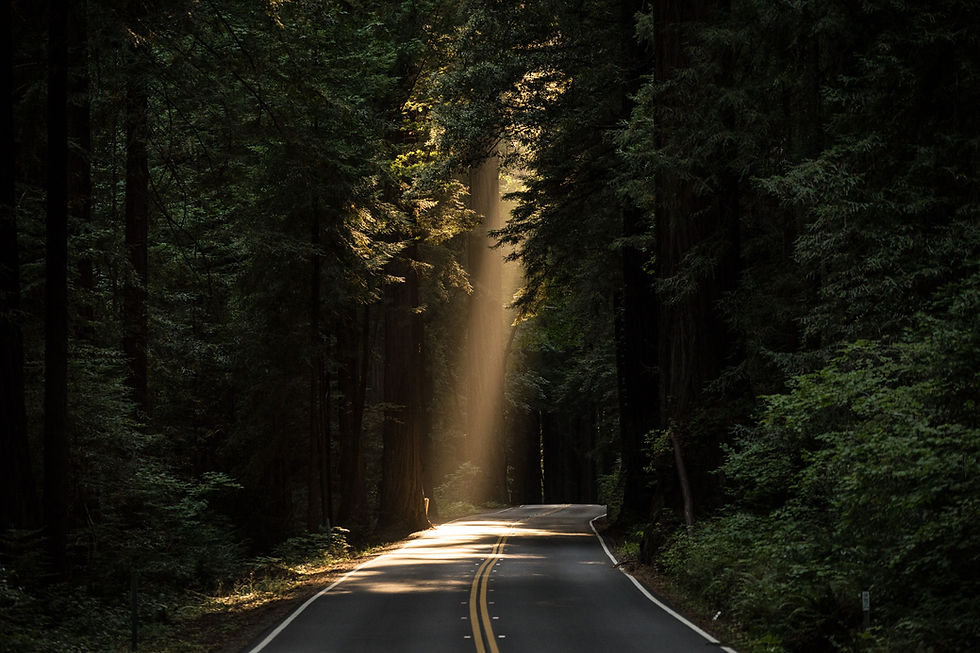Study Links Fashion Brands to Deforestation
- Aimee Jones
- May 23, 2022
- 3 min read
Aimee Jones reports on the role of fashion brands in the deforestation of the Amazon Rainforest and what we, as consumers, can do to limit damage to the environment.
Photo by Peter Plashkin
Between August 2020 and July 2021, the Amazon Rainforest lost approximately 10,476 square kilometres to deforestation: the destruction of forest areas in service of agricultural croplands, mining activities, and urbanisation. This equates to an area almost seven times bigger than London and is more than 57% higher than the previous year's figures, proving that deforestation is on the rise.
Since the 1960s, deforestation has increased because of human activities, such as supplying materials to the fashion industries. Recent studies have investigated some of the world's most complex global supply chains as the perpetrators of this increase. A large number of fashion brands are contributing to the deforestation of the Amazon Rainforest based on their connections to various other companies involved in the trading of leather goods.
What is a supply chain?
Trading is an essential element in a supply chain. As a long process, where various companies are involved in the creation of the final product, a link of activities are required by the seller to enable them to deliver goods and services to the consumer. Ultimately, it is the process in which raw materials are converted into their final state, which is unfortunately desirable at the cost of the natural environment.
JBS, specifically, has been linked to the deforestation of the Amazon Rainforest, as brands are exclusively dependent on their services within the supply chain. One of the main activities that JBS have been known for is using cattle supplied from a farm in the Brazilian Amazon, which is under sanction for illegal deforestation. 45% of forest area was lost because of the cattle industry in Brazil, equating to 21.8 million hectares between 2001 and 2015. Moreover, it has been found that over 50 big brands, such as Nike, Dr Martens, H&M, Zara, and New Balance, have multiple supply chain links to Brazilian leather exporters and the meat supplier, JBS. 22 out of 74 companies are even breaching their own policies when it comes to sourcing leather from deforestation. Shockingly, two-thirds of the companies in question did not have any policies in place regarding deforestation, underlying a wider issue which is endemic to corporations unwilling to adapt to eco-friendly operations.
Limiting the Scope of Deforestation
Fortunately, JBS has promised to eliminate illegal deforestation in other Brazilian biomes by the year 2030 and eradicate deforestation across their entire supply chain in five years’ time. But is this enough? Many believe that their goal is insufficient, as it is set 8 to 13 years from now - a wide ballpark for further environmental damage – not to mention their initial statement condemns illegal deforestation exclusively, which is far from a complete reprehension of the practice.
To fight back, Sara Slavikova summaries various ways that we can help to reduce and prevent deforestation:
Plant more trees
Recycle (especially paper and cardboard) and use more recycled goods
Avoid buying products which contain palm oil
Support organisations that are fighting deforestation
Reduce meat consumption
If we, as consumers, wish to limit the scope of deforestation, these are examples of eco-conscious lifestyle changes that should certainly be prioritised in our battle to protect the environment. Similar: Global Forest Regrowth: 58.9m Hectares in 20 Years
We are a not for profit socio-ethical impact initiative advocating for topics that matter, whilst supporting wider planetary change and acknowledgement. Support our journalism by considering becoming an advocate from just £1.















Comments